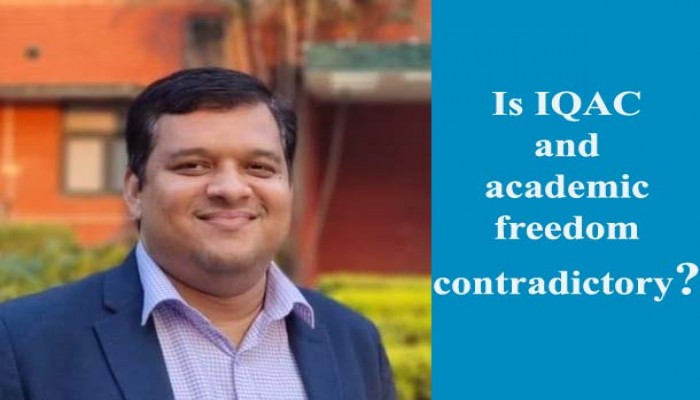
Dr. Nahin Mamun
Private universities are struggling to understand how to standardise course content and exams while maintaining academic freedom that universities need to provide. Let’s assume that the IQAC (Internal Quality Assurance Cell) and academic freedom are not inherently contradictory.
IQAC is a mechanism used by educational institutions to monitor and ensure the quality of education, maintain standards, and improve academic processes. It focuses on various aspects like curriculum development, teaching methodologies, assessment systems, and student support services.
Academic freedom, on the other hand, refers to the freedom of scholars, researchers, and educators to pursue their research, teaching, and intellectual activities without undue interference or restrictions. It encompasses the right to explore controversial or unpopular ideas, engage in critical thinking, and express diverse perspectives.
While IQAC is primarily concerned with quality assurance and institutional policies, it should ideally support and enhance academic freedom rather than restrict it. A well-functioning IQAC can provide a framework to ensure that academic freedom is exercised responsibly and in line with institutional goals and societal needs. By promoting transparency, accountability, and continuous improvement, IQAC can contribute to creating an environment that values academic freedom while maintaining educational standards.
However, it is important for departments to strike a balance between quality assurance and academic freedom. Excessive bureaucracy or rigid regulations within the IQAC framework could potentially impede academic freedom by restricting the autonomy of scholars and educators. Therefore, it is crucial to design IQAC processes in a way that encourages intellectual diversity, fosters critical thinking, and allows for innovation and exploration of new ideas within the educational institution.
If one academic oversees the works of another academic eventually there will be conflicts. Again, junior academics commenting on course design of senior academics can lead to workplace hostility. Before starting strenuous IQAC bureaucracy, departments and schools need to measure possible negative impact.
In summary, IQAC and academic freedom can coexist and even complement each other when implemented and managed thoughtfully by academic leaders. Both are essential components of a robust and thriving academic environment, and it is important to find a balance that promotes quality education while respecting the freedom of intellectual inquiry and expression.
Contributor: Dr. Nahin Mamun, Assistant Professor, North South University. General Secretary, Bangladesh Society for Private University Academics (BSPUA).




